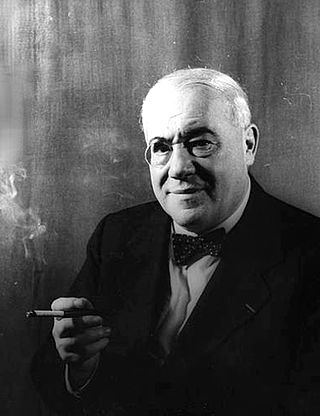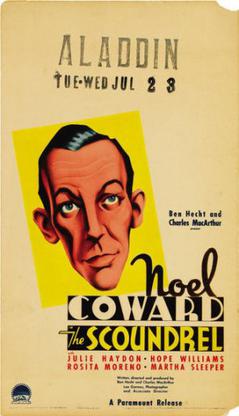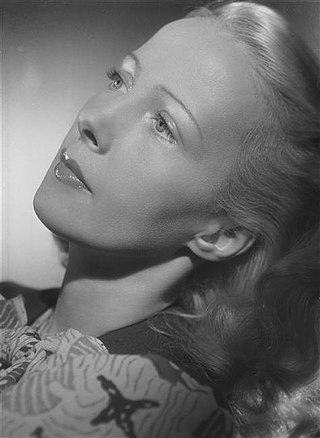
Carousel is the second musical by the team of Richard Rodgers (music) and Oscar Hammerstein II. The 1945 work was adapted from Ferenc Molnár's 1909 play Liliom, transplanting its Budapest setting to the Maine coastline. The story revolves around carousel barker Billy Bigelow, whose romance with millworker Julie Jordan comes at the price of both their jobs. He participates in a robbery to provide for Julie and their unborn child; after it goes tragically wrong, he is given a chance to make things right. A secondary plot line deals with millworker Carrie Pipperidge and her romance with ambitious fisherman Enoch Snow. The show includes the songs "If I Loved You", "June Is Bustin' Out All Over" and "You'll Never Walk Alone". Richard Rodgers later wrote that Carousel was his favorite of all his musicals.

Friedrich Christian Anton Lang, better known as Fritz Lang, was an Austrian-born German-American film director, screenwriter, and producer who worked in Germany and later the United States. One of the best-known émigrés from Germany's school of Expressionism, he was dubbed the "Master of Darkness" by the British Film Institute. He has been cited as one of the most influential filmmakers of all time.

Thea Gabriele von Harbou was a German screenwriter, novelist, film director, and actress. She is remembered as the screenwriter of the science fiction film classic Metropolis (1927) and for the 1925 novel on which it was based. von Harbou collaborated as a screenwriter with film director Fritz Lang, her husband, during the period of transition from silent to sound films.
Benjamin F. Glazer was a screenwriter, producer, Foley artist, and director of American films from the 1920s through the 1950s. He made the first translation of author / playwright Ferenc Molnár's play Liliom (1909) into English from its original Hungarian (Magyar) in 1921. His translation was used in the first American live stage play performance that year and later in the subsequent 1930 film version, and in every production in English of the play for the 115 years since its 1909 writing until recently. It also served as the basis for the libretto for Rodgers and Hammerstein's Carousel, as well as for Phoebe and Henry Ephron's screenplay for the 1956 film version.

Ferenc Molnár, often anglicized as Franz Molnar, was a Hungarian-born author, stage director, dramatist, and poet. He is widely regarded as Hungary's most celebrated and controversial playwright.

Dudley Digges was an Irish stage actor, director, and producer as well as a film actor. Although he gained his initial theatre training and acting experience in Ireland, the vast majority of Digges' career was spent in the United States, where over the span of 43 years he worked in hundreds of stage productions and performed in over 50 films.
"If I Loved You" is a show tune from the 1945 Rodgers and Hammerstein musical Carousel.

Liliom is a 1909 play by the Hungarian playwright Ferenc Molnár. It was well known in its own right during the early to mid-20th century, but is best known today as the basis for the Rodgers and Hammerstein 1945 musical Carousel.

Erich Pommer was a German-born film producer and executive. Pommer was perhaps the most powerful person in the German and European film industries in the 1920s and early 1930s.

Carousel is a 1956 American drama fantasy musical film based on the 1945 Rodgers and Hammerstein stage musical of the same name, which in turn was based on Ferenc Molnár's 1909 non-musical play Liliom. The film stars Gordon MacRae and Shirley Jones and was directed by Henry King.

The Scoundrel is a 1935 American drama film directed by Ben Hecht and Charles MacArthur, and starring Noël Coward, Julie Haydon, Stanley Ridges, Rosita Moreno and Lionel Stander. It was Coward's film debut, aside from a bit role in a silent film. It deals with supernatural redemption in a way rather similar to Ferenc Molnár's Liliom, and drew inspiration from the life of publisher Horace Liveright, who had died in September 1933.
Ferenc Molnár wrote The Good Fairy, originally A jó tündér, in 1930. The English translation by Jane Hinton was presented on Broadway, with another production later that year. In 1935, Preston Sturges adapted the story for the film The Good Fairy. The film's screenplay was used as the basis for the 1951 Broadway musical Make A Wish. The Good Fairy tells the story of a woman who must face the consequences of pretending to be someone she is not.
Liliom is a 1930 American pre-Code drama film directed by Frank Borzage and written by S. N. Behrman and Sonya Levien. The film stars Charles Farrell, Rose Hobart, Estelle Taylor, H. B. Warner, Lee Tracy and Walter Abel. It was an adaptation of the 1909 play of the same name, serving as the first sound version of the film and the first of two sound adaptations of the play in the 1930s, with a 1934 adaptation being directed by Fritz Lang. The film was released on October 5, 1930, by Fox Film Corporation, who also handled the 1934 film. Alongside Just Imagine, also released by Fox, this was one of the first films to employ rear projection, which is done during a train sequence.

Roland Toutain was a French actor, songwriter and stuntman. He appeared in 55 films between 1924 and 1957, both in leading and supporting roles.
Liliom is a 1909 play by Ferenc Molnár.

Madeleine Ozeray, was a Belgian stage and film actress. She appeared in many films between 1932 and 1980. She is the godmother of theater actor, dancer and singer Frédéric Norbert.
Marcel Vandal (1882–1965) was a French film producer. During the 1910s he worked closely with the German producer Erich Pommer for the French company Eclair. Vandal served in the French Army during the First World War. He directed four silent films between 1926 and 1928.
Bettler GmbH is a 1919 German silent film directed by Alwin Neuß and starring Paul Otto and Lil Dagover.

The Weissensee Studios was a collection of separate film production studios located in the Berlin suburb of Weißensee during the silent era.

A Man Has Been Stolen is a 1934 French comedy thriller film directed by Max Ophüls and starring Lili Damita, Henri Garat and Raoul Marco.













